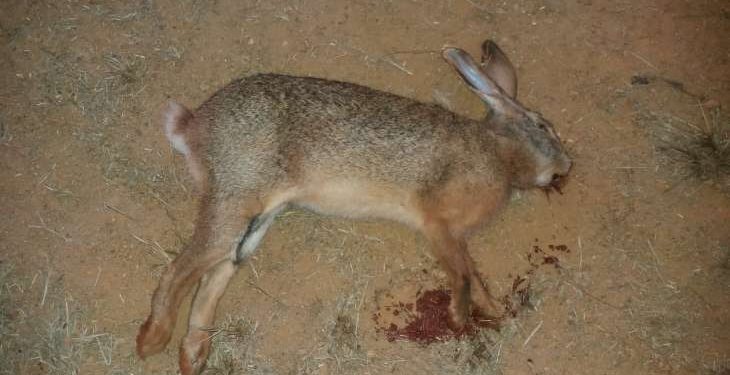Boipariguda: The recent death of a hare in an accident on National Highway (NH)-326 connecting Ranchi with Vijayawada near Boipariguda forest division of Koraput district has underscored the importance of taking immediate measures to check such incidents.
This highway stretching nearly 60 feet connects Ranchi in Jharkhand to Vijayawada in Andhra Pradesh. Out of 86 km, at least 40 km passes through the crucial wildlife habitats of Boipariguda forest division. Notably, the construction of the road had been completed in 2018.
As the road is connecting two major cities of two states, the road experiences heavy vehicular traffic and has seen the highest number of wild animal deaths due to accidents.
More than 25 deer, hares, rabbits, bats and owls have been crushed to death under speeding vehicles on the highway in the last six months, a report said. Repeated loss of lives of animals due to careless and reckless driving has become a matter of concern. This has led to resentment among animal lovers, conservationists and senior citizens who blamed the forest department for the animal deaths.
According to sources, the highway from Jeypore to Malkangiri passes through three forest areas—Jeypore, Boipariguda and Gobindpali — home to a wide range of wildlife.
While Jeypore area comprises forests from Dangarchintru to Patraput, Boipariguda forest range extends from Kota to Panditbeda and Gobindpali area in Malkangiri district covers Saptadhara River to Gobindpali Ghat.
Earlier, the roads were narrow. Animals used to easily cross the road. Now, with 60 ft-wide roads, it is difficult for the animals to cross them from one side to the other.
Moreover, the number of buses plying from Bhubaneswar, Cuttack, Berhampur, Raipur and Malkangiri has tripled in the last one year, making the road one of the busiest. Since most of the bus services are at night, they pose serious threat to the animals crossing the highway.
“One can witness the death of animals on a daily basis while crossing this road,” a local said adding that there was an urgent need to take steps to protect the animals.
Earlier some wild animal activist contacted Boipariguda forest range officer Ramesh Chandra Rout, requesting him to take action in this regard.
“We will take steps to install caution signboards displaying speed limits across the highway road in the forest area along with setting up CCTVs at accident prone areas on the road and spread awareness among the drivers for safe driving at nights,” Rout had said.
But the official has not taken any action in this regard yet.
Moreover, the night buses are often beyond speed limits. Since most of the animals venture out in the night in search of food, they fall under the wheels of vehicles. Also, the vehicle headlights blind the animals and stun their instincts to escape. Rabbits, foxes, wolves, bats, owls and other nocturnal animals are the worst sufferers.
Residents demanded that certain areas be declared animal sensitive zones and vehicular speed controlled. “The highway vehicular speed has become a curse to wildlife. The government must construct underpasses, bridges in such dense forests, so that animals can pass around safely,” a local said.
PNN

